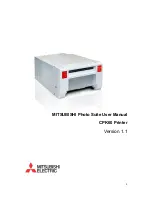
To copy or move a file
1
In the Symantec pcAnywhere window, on the left navigation bar, under
pcAnywhere Manager, click Command Queues.
2
Do one of the following:
■
To configure an existing command queue file, right-click the file, and then
click Properties.
■
To configure a new command queue file, on the File menu, click New Item
> Advanced.
3
On the Commands tab, under Command entry, in the Command list, do one
of the following:
■
To copy files to the host or remote computer, select Copy.
■
To move files from one computer to another, select Move.
4
Do one of the following:
■
To copy or move a file from the host computer to the remote computer,
under Source, click Host, and then browse to the file that you want to
copy or move.
■
To copy or move a file from the remote computer to the host computer,
under Source, click Remote, and then browse to the file that you want to
copy or move.
5
Do one of the following:
■
To copy or move a file from the host computer to the remote computer,
under Destination, click Remote, and then browse to the folder in which
you want to place the file.
■
To copy or move a file from the remote computer to the host computer,
under Destination, click Host, and then browse to the folder in which you
want to place the file.
6
Click Add.
7
Click OK.
Deleting a file
Files that are deleted during a file transfer operation are automatically added to
the Command Queue as delete commands. You can also manually add delete
commands to a command queue file.
You must provide the full path to files and folders on the host computer. You can
browse directories on the remote computer.
Automating file transfer and management tasks
Using command queue files to automate tasks
184
Summary of Contents for PCANYWHERE - V12.5
Page 1: ...Symantec pcAnywhere User s Guide 12164653 ...
Page 16: ...Contents 16 ...
Page 28: ...Introducing Symantec pcAnywhere Where to find more information 28 ...
Page 68: ...Installing Symantec pcAnywhere Post installation tasks 68 ...
Page 234: ...Securing your computer and sessions Ways to assess host security 234 ...
















































